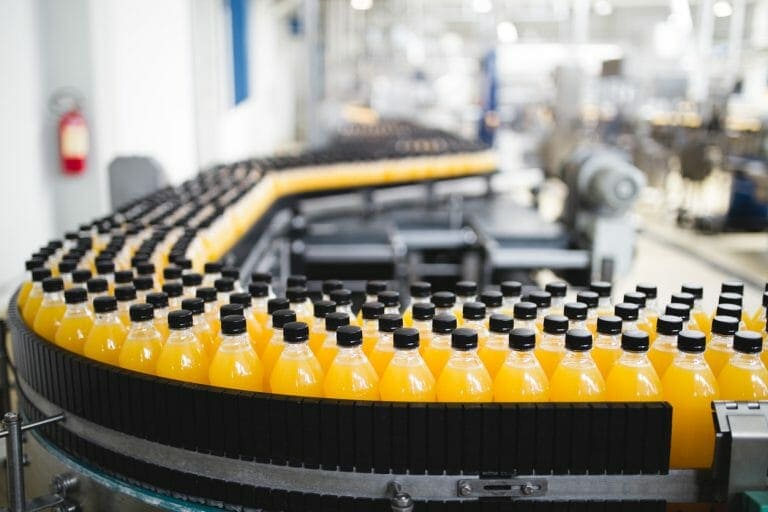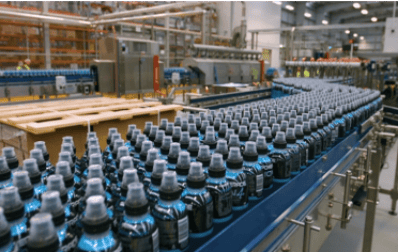Beverage plant sanitation is important to avoid contamination of both raw materials and equipment. Because soils found in beverage plants mostly contain sugar and are water soluble, cleaning and control of microbes is much more manageable than alcoholic beverage plants.

Threats in Beverage Production
Beverages are a complex blend of a variety of compounds, leaving room for cross contamination and undesirable compounds. The most common bacteria that has threatened the beverage industry for decades is known as Alicyclobacillus, a thermoacidophilic, spore-forming spoilage bacterium. The spores of Alicyclobacillus are heat resistant and survive for long periods in fruit concentrates, constantly threatening the juice industry. Nutritionally rich beverages are ideal sources for microbial growth and survival, and spoilage usually presents as off-flavors or odors. The risk of mycotoxins is related to health hazards and economic losses in the beverage industry. While Alicyclobacillus has been widely studied and can be treated with chemical or physical interventions, microbial cross contamination can easily occur during any stage of production, from raw material harvesting to manufacturing to packaging. The best way to ensure the integrity of your beverage is to maintain a meticulously clean and controlled environment.
Types of Contamination
Contamination is the introduction of microbiological, chemical, or foreign impurities. There are three types of contamination found in beverage processing: microbial contamination, particle contamination, and cross contamination. Microbial contamination is the most harmful because it involves harmful bacteria or mold that can cause illness. These microbes typically find their way into products through human interaction, thus proper employee safety and handling should be emphasized and monitored. Particle contamination occurs when particles such as dust contaminate the product during production or packaging. A harmful level of particles is usually the result of poor facility design or lack of air filtration. Finally, cross contamination typically occurs during the production stage when either manufacturing equipment for different products and ingredients was not properly sanitized or when employees handle multiple products without sanitizing.
Implementing Best Sanitation Practices
Preventing contamination begins with proper facility sanitation. A reliable, highly used method is hot water sanitizing with washdown equipment. Wall-mounted mixing stations combine either steam or cold water with hot water to achieve the perfect temperature for hot water sanitation. Using an industrial hot water gun, manufacturing equipment surfaces should be sanitized with water of at least 180° for 15 minutes. A cleaning compound or chemical sanitizer aids in penetrating resistant microbes. Packaging areas risk high exposure to contamination and should be cleaned throughout the day with the same method. Periodic washdowns, eliminating standing water, and thorough cleaning at the end of the day ensures the quality and integrity of any beverage materials. Hygiene is ultimately embedded in the facility design, so adequate filtration and the use of sanitary water, air, and steam is vital for production and packaging. Adhering to strict safety and handling requirements should be the forefront of any plant and its employees. Having a cleaning schedule and proper safety training and enforcement is of the upmost importance to ensure greater control of the quality process. SuperKlean has worked closely with beverage and juice producers who use our washdown equipment to comply with industry standards and guarantee manufacturing success. SuperKlean mixing stations, industrial nozzles, and hot water hoses are designed to achieve maximum sanitation and will help your beverage plant stay microbe free.


